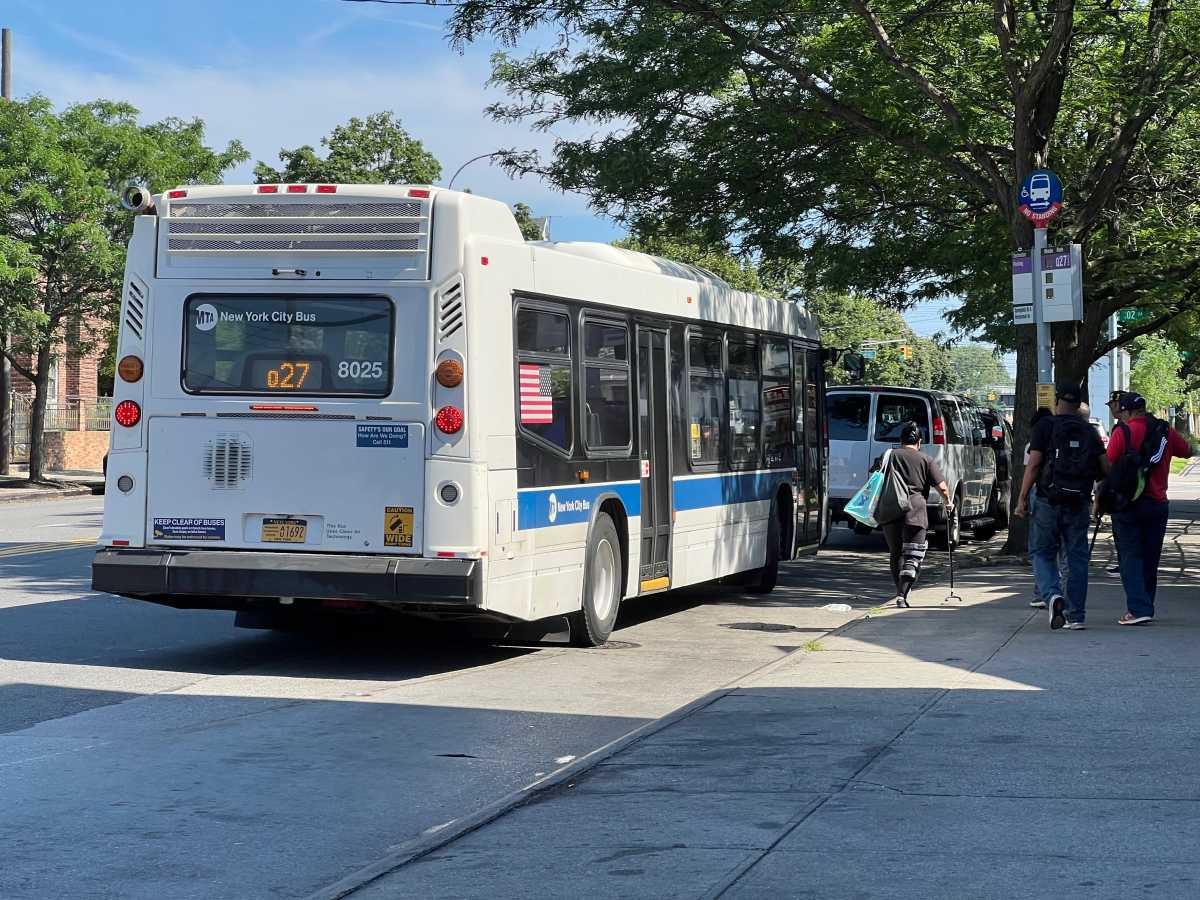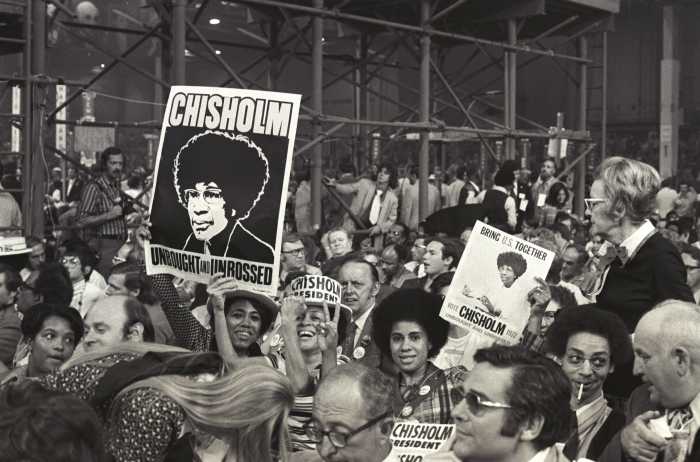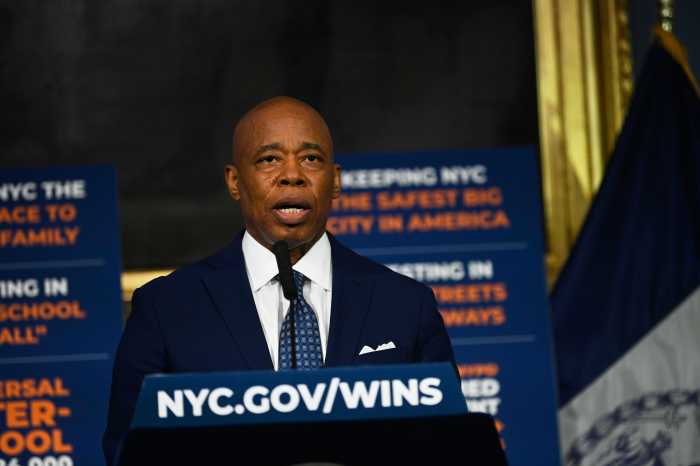BY LINCOLN ANDERSON | Several weeks ago, a remarkable event took place in Manhattan — a crowd of around 100 turned out to voice their anger and frustration at news of the closing of a supermarket. Neighborhood residents, joined by local elected officials, rallied outside a West 14th Street Associated when they learned that the market faces a tripling in its rent that will price it out of it space.
The Associated supermarket in question has been a staple at the spot for 27 years and, as a midlevel, affordable supermarket serving the West Side, is deeply appreciated by a diverse mix of patrons. Seniors in particular, many on fixed incomes, rely on the grocery store in an ever-gentrifying part of Manhattan.
And that, of course, is the real issue. The insistent demand for housing in Manhattan is driving up rents, not only on apartments but also on the retail outlets that sustain neighborhood life. We may see many “improvements” in our neighborhoods, but our quality of life — our ability simply to live here — can suffer when the stores delivering the everyday necessities of life at affordable prices are again and again forced out through the lease-renewal process.
Express Ourselves
The politicians at the March 13 rally were sincere in calling on the property’s landlord to meet with them and try to reach terms under which the supermarket could stay. And Community Board 2 has launched an online petition to save the store, as well. But any action in that direction — any lowering of the rent to something even remotely affordable for Associated — would be totally voluntary on the landlord’s part.
It’s clear that the steady attrition of beloved local merchants will be an ongoing story — unless there is a dramatic change, and that change is probably only possible through legislative action. If Associated’s lease is not renewed, it would be very deeply felt because of the supermarket’s oversized importance in its local community. But even if elected officials, the local community board, and other neighborhood advocates are able to save this store, the larger problem of skyrocketing commercial rents remains, unaddressed in any citywide fashion. Coalitions will simply not arise to effectively challenge every retail loss that impoverishes local communities.
Mayor Bill de Blasio, to his credit, has made the housing affordability crisis one of the key issues of his administration. He pulled off a real coup last year when the Rent Guidelines Board voted to approve a rent freeze for one-year lease renewals for rent-stabilized apartments. That vote was a relief to millions of rent-burdened New Yorkers. With de Blasio in the middle of his first term, we can expect continued rent freezes, perhaps even a rollback. After all, as was clearly documented, landlords had for years unfairly profited from exaggerated operating-expense projections.
The mayor, however, has not been nearly as good in offering protection to small businesses, a cornerstone of the city’s affordability. For 25 years, the Small Business Jobs Survival Act has sat idling in the City Council as its members have routinely lamented the loss of vital local businesses in their districts. It’s no secret that the city’s powerful real estate industry does not want the measure to ever come up for a vote, even though the system it would establish would bring fairness to both sides in lease renewal negotiations by creating a system of nonbinding mediation, followed when necessary by binding arbitration between landlords and merchants.
Previous leaders on the Council have blocked the Small Business Jobs Survival Act from being voted on, despite strong support for it among their members. Now, under a new speaker, support has again been building for the measure — with more than two dozen councilmembers currently signed on as sponsors.
A year ago, Speaker Melissa Mark-Viverito told The Villager, a sister publication to Manhattan Express, that the Council would have a hearing, maybe more than one, about small business survival that would look at all options, including the SBJSA. To date, though, there has been no hearing. Mark-Viverito’s office did not respond to a recent request to clarify where matters stand regarding the commitment to hold such a hearing.
Among the elected officials who turned out to rally at Associated earlier this month, only two spoke to this larger issue. West Side Congressmember Jerrold Nadler said he felt commercial rent regulation is needed, while Assemblymember Dick Gottfried talked more generally about using the power to legislate to address the crisis.
The Small Business Jobs Survival Act might not be the perfect answer. Perhaps it needs some tweaking. There could be better options — but ones that go beyond the mere tax breaks de Blasio and others mistakenly think will appease the landlords.
What is clear is that a conversation is desperately needed, one that involves all sides. Without addressing commercial rents, the mayor’s affordability vision is deeply flawed. Mark-Viverito, having promised one or more hearings a year ago, should show some guts as well as some leadership in forging real, long-term solutions to the crisis facing small businesses in Manhattan and elsewhere in the city. Otherwise, we can only look forward to more desperate rallies and, sadly, an even greater number of store closings.
Lincoln Anderson is the editor-in-chief of The Villager, a sister publication to Manhattan Express.





































